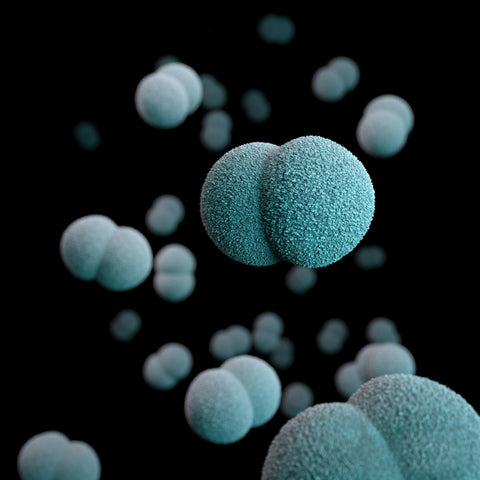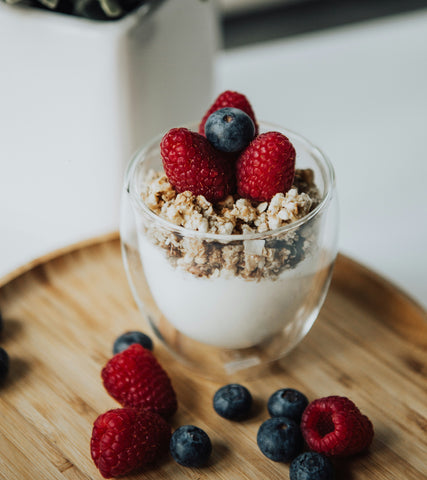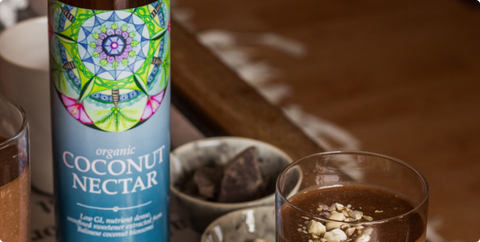The Gut Unveiled: Exploring Fascinating Discoveries and Foods to Enhance Gut Health
The human gut, often referred to as the "second brain," is a complex ecosystem teeming with trillions of microbes that play a pivotal role in our overall health and well-being. Recent scientific advancements have shed light on the intricate relationship between gut health and various aspects of human physiology, from immunity to mental health. In this article, we'll delve into some of the most intriguing findings about gut health and explore dietary strategies to support and optimize gut microbiota composition.
Understanding Gut Health
The gut microbiota, comprised of bacteria, viruses, fungi, and other microorganisms, form a dynamic ecosystem within the gastrointestinal tract. These microbes perform a myriad of functions, including aiding in digestion, synthesizing vitamins, modulating the immune system, and influencing neurotransmitter production.
Research has shown that disruptions to the balance of gut microbiota, known as dysbiosis, are associated with a wide range of health conditions, including inflammatory bowel diseases, obesity, diabetes, autoimmune disorders, and even mental health disorders like depression and anxiety.
Fascinating Discoveries
- Gut-Brain Axis: The bidirectional communication pathway between the gut and the brain, known as the gut-brain axis, has garnered significant attention in recent years. Studies have demonstrated that the gut microbiota can influence brain function and behavior through various mechanisms, including the production of neurotransmitters such as serotonin and gamma-aminobutyric acid (GABA).
- Immune Function: Approximately 70% of the body's immune cells reside in the gut-associated lymphoid tissue (GALT), highlighting the critical role of the gut in immune function. A diverse and balanced gut microbiota is essential for maintaining immune homeostasis and mounting effective immune responses against pathogens.
- Metabolic Health: Emerging evidence suggests that gut microbiota composition may impact metabolic health and contribute to conditions such as obesity and type 2 diabetes. Certain microbial species have been associated with increased energy extraction from food, inflammation, and insulin resistance.
- Mood and Mental Health: The gut-brain axis also influences mood and mental health, with alterations in gut microbiota composition linked to conditions like depression, anxiety, and stress. Microbes in the gut produce neurotransmitters and neuroactive compounds that can influence brain function and mood.
Improving Gut Health with Gut-Loving Foods
We wrote a whole article on the gut which includes a long list of gut-loving foods, so we wouldn't go into too much detail here. You can read our gut health article here.
- High-Fiber Foods: Fiber-rich foods, such as fruits, vegetables, legumes, and whole grains, serve as prebiotics, fueling the growth of beneficial gut bacteria. Aim to incorporate a variety of fiber sources into your diet to promote microbial diversity and support gut health.
- Fermented Foods: Fermented foods like yogurt, kefir, kimchi, sauerkraut, and miso contain beneficial probiotic bacteria that can colonize the gut and enhance microbial diversity. These foods also provide a natural source of vitamins, minerals, and enzymes.
- Polyphenol-Rich Foods: Polyphenols, found in foods like berries, nuts, seeds, green tea, and dark chocolate, have antioxidant and anti-inflammatory properties that can benefit gut health. Polyphenols may also modulate the composition of gut microbiota and promote the growth of beneficial bacteria.
- Healthy Omega-3 Fatty Acids: Omega-3 fatty acids, abundant in fatty fish like salmon, sardines, and mackerel, as well as flaxseeds, chia seeds, and walnuts, have been shown to possess anti-inflammatory properties that can support gut health. Incorporating omega-3-rich foods into your diet may help reduce inflammation and promote a healthy gut environment.
- Food (Nutrient) Diversity: Aim for a diverse and balanced diet that includes a variety of nutrient-rich foods from all food groups. Moderation is key, as excessive consumption of certain foods, such as processed foods high in sugar and unhealthy fats, can negatively impact gut health.
Knowing all of this is great, but what's more valuable is also having practical recipes at hand that's already been 'designed' with gut health in mind.
Give these simple and easy gut-loving recipes a try:
- Gut loving Fruity Chia bowl
- Chia bubble tea
- Chia meal
The field of gut health research continues to uncover the intricate connections between the gut microbiota and human health. By understanding the fascinating interplay between the gut and various physiological processes, we can make lifestyle changes to optimize the gut microbiota composition and improve our overall longevity. By eating more fiber-rich foods, fermented foods, polyphenol-rich foods, omega-3 fatty acids, and maintaining dietary diversity, we can cultivate a healthy gut environment that is supportive to overall health and well-being.
Reputable sources where you can find more information on gut health and related topics:
- Scientific Journals: Peer-reviewed journals such as "Gut," "Nature Reviews Gastroenterology & Hepatology," and "The Journal of Nutrition" publish research articles on gut microbiota, gut-brain axis, immune function, and metabolic health
- Books: Authors such as Dr. Justin Sonnenburg, Dr. Rob Knight, and Dr. Emeran Mayer have written extensively on gut health and the microbiome. Their books can provide in-depth insights into the latest research and findings






Comments (0)
There are no comments for this article. Be the first one to leave a message!